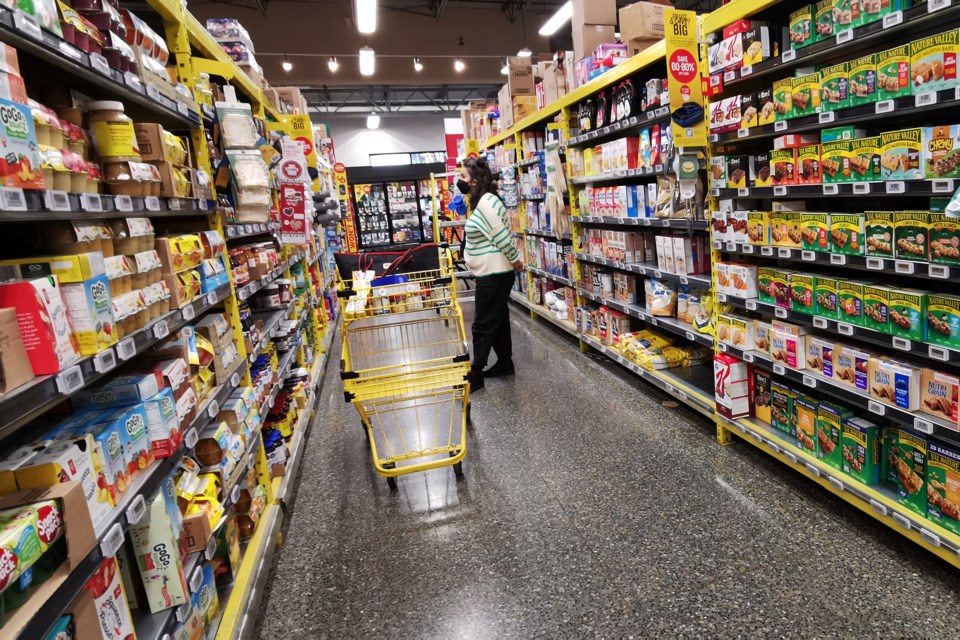World
B.C. Inflation Eases, Yet Grocery Prices Surge Higher

Inflation in British Columbia has shown signs of cooling, but grocery prices continue to rise sharply, putting pressure on household budgets. According to the latest data from Statistics Canada, the Consumer Price Index (CPI) in the province increased by 4.6% year over year as of August 2023. This marks a significant decrease from a peak of 6.5% earlier in the year, indicating a positive trend for overall consumer prices.
Despite this overall decline, food prices have surged at a much higher rate. In August 2023, the cost of groceries saw an alarming increase of 11.5% compared to the previous year. This disparity highlights a growing concern among consumers as essential items become increasingly unaffordable.
Impact on Households
The rising costs of food staples are squeezing the budgets of many families across British Columbia. Notably, prices for meat and seafood have experienced significant jumps. For instance, the price of fresh vegetables and fruits has also risen sharply, contributing to the overall inflation in the grocery sector. Households are now faced with difficult choices, as they struggle to balance their finances in the face of escalating food costs.
Consumer sentiment reflects this financial strain. Many families report altering their purchasing habits, opting for cheaper alternatives or reducing the quantity of food purchased to manage their budgets effectively. The ripple effects can be felt across various sectors, impacting everything from family meal planning to local food businesses.
Looking Ahead
As British Columbia continues to navigate these economic challenges, analysts are closely monitoring food price trends. The rising cost of groceries is expected to persist, driven by a combination of factors including supply chain disruptions, climate impacts on food production, and increasing demand.
While the overall inflation rate may be decreasing, the significant rise in grocery prices remains a critical issue for consumers. The government and relevant stakeholders will need to consider measures to support families struggling with high food costs.
As the situation evolves, it will be essential for consumers to stay informed and adapt to these changes in the economic landscape. The ongoing dialogue surrounding inflation and food prices will likely continue to shape the financial realities for families in British Columbia and beyond.
-

 Politics2 weeks ago
Politics2 weeks agoSecwepemc First Nation Seeks Aboriginal Title Over Kamloops Area
-

 World4 months ago
World4 months agoScientists Unearth Ancient Antarctic Ice to Unlock Climate Secrets
-

 Entertainment4 months ago
Entertainment4 months agoTrump and McCormick to Announce $70 Billion Energy Investments
-

 Lifestyle4 months ago
Lifestyle4 months agoTransLink Launches Food Truck Program to Boost Revenue in Vancouver
-

 Science4 months ago
Science4 months agoFour Astronauts Return to Earth After International Space Station Mission
-

 Technology3 months ago
Technology3 months agoApple Notes Enhances Functionality with Markdown Support in macOS 26
-

 Top Stories1 month ago
Top Stories1 month agoUrgent Update: Fatal Crash on Highway 99 Claims Life of Pitt Meadows Man
-

 Sports4 months ago
Sports4 months agoSearch Underway for Missing Hunter Amid Hokkaido Bear Emergency
-

 Politics3 months ago
Politics3 months agoUkrainian Tennis Star Elina Svitolina Faces Death Threats Online
-

 Politics4 months ago
Politics4 months agoCarney Engages First Nations Leaders at Development Law Summit
-

 Technology4 months ago
Technology4 months agoFrosthaven Launches Early Access on July 31, 2025
-

 Lifestyle2 months ago
Lifestyle2 months agoManitoba’s Burger Champion Shines Again Amid Dining Innovations





















